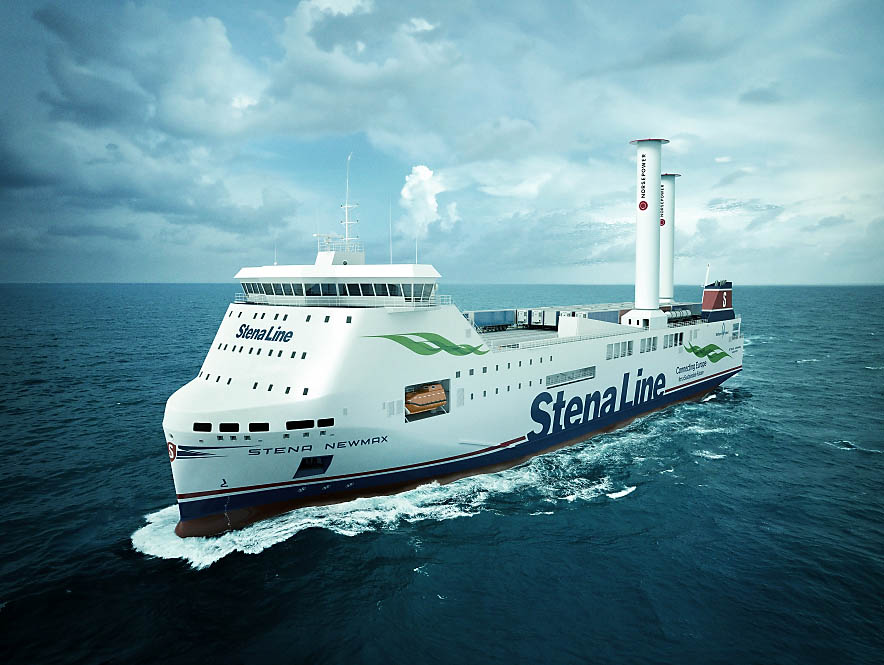One of Stena Line’s new ro-pax ferries being built by Jinling Weihai Shipyard in China will feature two 28x4m Norsepower Rotor Sails™ (NPRS), projected to deliver up to nine per cent fuel savings on the planned trade route.
Scheduled for delivery to Stena Line from Stena RoRo in Q4 2025, the ship will operate on the Irish Sea, between Belfast and Heysham, where wind conditions are very favourable for wind-assisted propulsion.
Stena Line’s strategic ambition to transition to renewable fuels, including securing future e-methanol volumes, aligns with Norsepower’s mission to drive decarbonisation through wind propulsion technology.
“We are honoured to work with Stena Line, a company that has consistently led the way in sustainable shipping innovation,” said Heikki Pöntynen, CEO of Norsepower.
“This partnership underscores the reliability and quality of Norsepower’sproducts, as well as its alignment with Stena Line’s forward-thinking goals to cut CO2 emissions by 30% by 2030.”
Dennis Tetzlaff, Chief Operating Officer Fleet, at Stena Line said, “Stena Line recently launched our new ship, Stena Connecta, and it will now be fitted out with two rotor sails.
“These sails will harness wind power to provide auxiliary propulsion to the vessel, therefore reducing fuel consumption and emissions. Innovations such as this are key to futureproofing our vessels and to reaching our emissions targets.”
The ro-ro vessel represents a step forward in sustainable shipping, built to operate on methanol and is part of a broader initiative to integrate sustainable technologies.
The sister vessel in the same series is being delivered “rotor sailready”, further demonstrating Stena Line’s commitment to wind propulsion.
To minimise environmental impact during the project’s execution phase, the NPRS will be manufactured at Norsepower’s new production facility in Yancheng, China, and delivered directly to the shipyard. This approach reduces costs and emissions while exemplifying both companies’ dedication to sustainable operations.
Stena Line has a long history of embracing innovation, becoming the first ferry operator to run a vessel on methanol with the conversion of Stena Germanica in 2015. The addition of Norsepower Rotor Sails further solidifies its position as an industry leader in decarbonisation.


